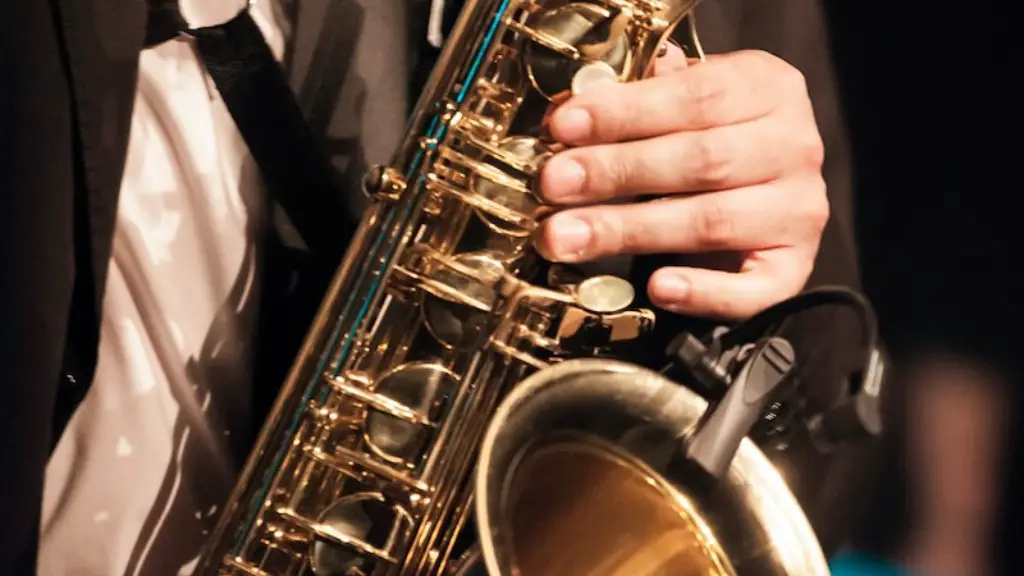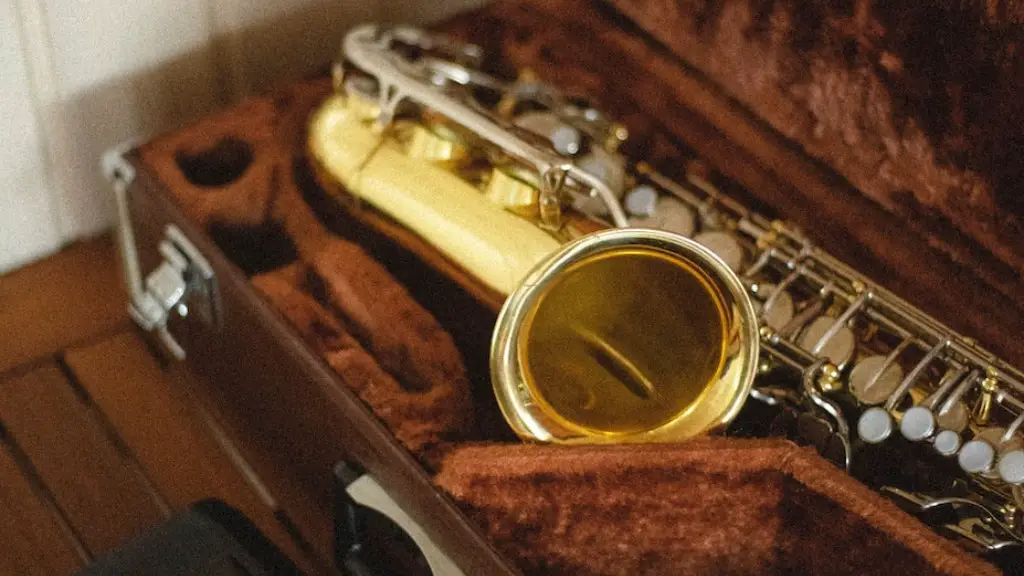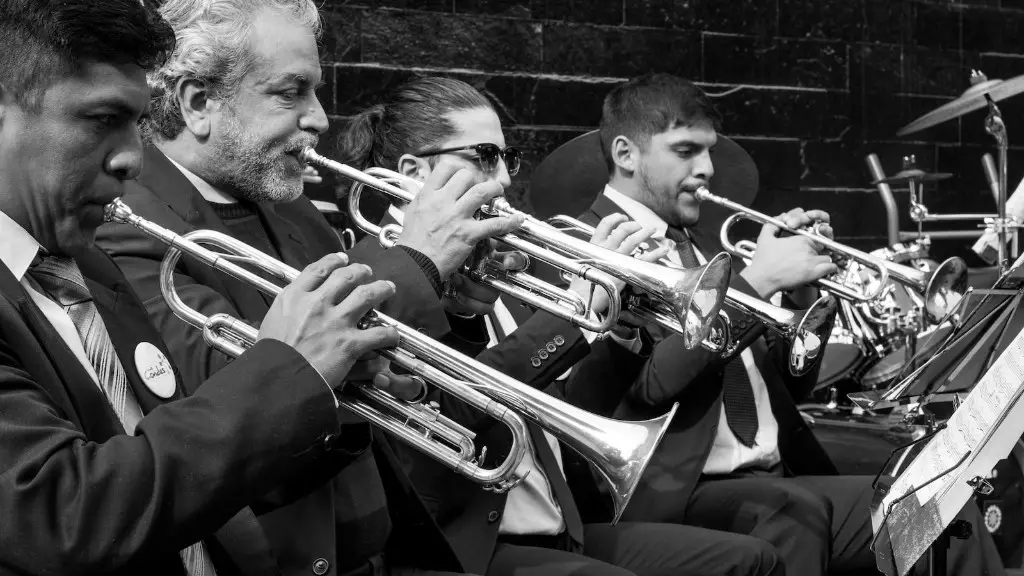Learning to play the trumpet can be a rewarding experience! The trumpet is an iconic instrument with a long and beautiful history in music. It is also one of the most versatile instruments, capable of performing many different styles. However, playing the trumpet does require a great deal of practice and dedication.
The basics of playing the trumpet are relatively simple to learn; however, mastering it takes time and hard work. Learning the proper techniques for producing sound from the instrument and developing good embouchure are key components in becoming a successful trumpeter. You will also need to develop your knowledge of music theory, as well as your ability to read sheet music.
Playing the trumpet does come with its challenges, but with commitment and practice you can achieve mastery over this beautiful instrument. The rewards are great; when you hear your own playing coming out of the bell of that brass horn, it’s an amazing feeling! So don’t be discouraged; learning to play the trumpet may take some hard work and dedication but it’s worth it in the end.
Benefits of Playing the Trumpet
The trumpet is a versatile and rewarding instrument to learn. Playing the trumpet provides a great sense of accomplishment and joy, as well as physical and mental benefits. Learning the trumpet can be challenging, but with practice and dedication, you can develop your skills and technique.
The trumpet has been used in many different styles of music for centuries, from jazz to classical. This allows for a wide range of musical expression and creativity. It also means that you can learn to play the trumpet in any genre or style that interests you.
Playing the trumpet also offers physical benefits, such as improved breathing capacity, increased dexterity, strengthened embouchure muscles and better posture. Additionally, regular practice can improve concentration and focus while providing stress relief.
By learning how to play the trumpet, you are not only improving your ability to make music – you are developing important life skills. You will gain confidence in yourself, hone your listening skills and become more disciplined with practice and repetition.
How Long Does it Take to Learn the Trumpet
Learning the trumpet is a rewarding experience that takes time and dedication. It takes most people several months to become comfortable with basic trumpet playing, while it can take many years to master the instrument. The exact amount of time required depends on how often you practice and your natural aptitude for music.
If you practice regularly, you can expect to make progress in a matter of weeks or months. You may be able to play simple melodies within a few weeks, and scales and other exercises soon after that. With more practice and experience, you will be able to start tackling more complex pieces of music.
Learning the trumpet is not necessarily hard, but it does take a lot of dedication and patience. It is important to establish good habits from the beginning such as warming up before playing and learning proper posture. Developing strong fundamentals will help ensure that you make steady progress as you learn more difficult pieces of music.
With regular practice and patience, anyone can become proficient at playing the trumpet. To get started, find an experienced teacher who can provide guidance on proper technique. Also consider joining a band or orchestra so that you can learn alongside other musicians in an engaging environment. With these resources at your disposal, you’ll soon be on your way to becoming an accomplished trumpet player!
Common Mistakes Made When Learning to Play the Trumpet
Learning to play the trumpet can be a challenging but rewarding experience. It takes a lot of practice and dedication, but mistakes are all part of the learning process. Some of the most common mistakes made when learning to play the trumpet include improper posture, improper embouchure, incorrect valve technique, and inefficient breathing.
Improper posture can lead to fatigue and tension while playing, so it’s important to stand or sit in a comfortable position. Additionally, an improper embouchure can lead to intonation issues and poor sound quality. Be sure you have a relaxed jaw and lips when forming your mouthpiece placement.
The correct valve technique is essential for playing properly in tune. When pressing down on valves, press them all the way down for maximum efficiency and use your fourth finger as well when necessary. Lastly, efficient breathing is essential for producing a good sound; take deep breaths from your diaphragm before playing and exhale slowly afterwards.
By being aware of these potential pitfalls when learning to play the trumpet, you can avoid making common mistakes while learning this instrument and progress steadily in your development as a musician.
Strategies for Becoming a Better Trumpet Player
Learning the trumpet can be a challenging process for any aspiring musician. However, with the right practice and dedication, it’s possible to become a better player. Here are some strategies to help you improve:
First, set aside time to practice regularly. Even if you can only dedicate fifteen minutes each day, make sure you’re consistently honing your skills.
Second, learn how to read music. It’s essential to be able to identify notes and rhythms as you play – this will help you learn new pieces much faster.
Third, take lessons from a professional teacher if possible. They’ll be able to provide personalized tips and guidance on how best to improve your playing.
Finally, listen to recordings of famous trumpet players and try to emulate their style and technique. This will give you an idea of how high-level musicians approach the instrument and may inspire you in your own playing.
By taking these steps, any aspiring trumpeter can become an expert in no time!
Learning to Play the Trumpet
Learning to play the trumpet can be quite challenging, but with the right techniques, anyone can make progress. Developing a good practice routine is key. Start by setting aside a specific amount of time each day to practice. Break up your practice sessions into smaller parts and focus on one element at a time, such as scales or basic techniques. A metronome can help keep your timing consistent and help you focus on accuracy while playing.
It’s important to listen carefully to the music you are playing and stay in tune with yourself and your instrument. Make sure you are using proper posture and that you are relaxed while playing. To develop a good sound, use long tones and lip slurs to help train your embouchure muscles and build endurance. Additionally, breaking down difficult passages into smaller parts can help make them easier to manage as you work towards mastering them.
With dedication and consistent practice, anyone can learn how to play the trumpet!
Tips for Making Learning to Play The Trumpet Easier
Learning to play the trumpet can be a challenging endeavor, but there are some simple tips that can help make it easier. Start with a good trumpet that fits your skill level and budget. It’s important to have an instrument with the right size and pitch for you. Another key step is finding a good teacher who can provide personalized instruction and guidance. Working on technique and regular practice sessions are essential for mastering the instrument.
It’s also important to listen to recordings of accomplished musicians, as this will help you learn proper phrasing, dynamics, and articulation. Try breaking down pieces into smaller sections so you can focus on mastering each part separately. And don’t forget to have fun – playing music should be enjoyable! With dedication and hard work, you’ll be able to master the trumpet in no time. Be sure to take regular breaks during practice sessions, as this will help keep your enthusiasm high.
The End
In conclusion, learning the trumpet is challenging but achievable. It requires time and dedication for one to master the fundamentals and make a good sound. The key to getting good at playing the trumpet is to practice regularly, have a good teacher, and stay motivated. If you can commit to these things, then you can make playing the trumpet an enjoyable experience. It’s never too late to start learning an instrument like the trumpet.





